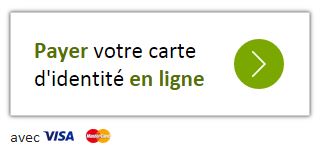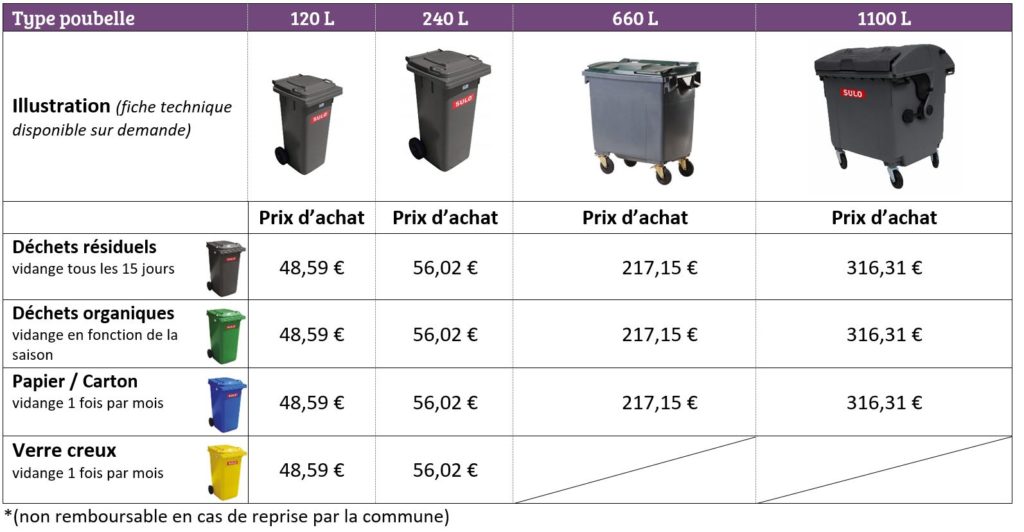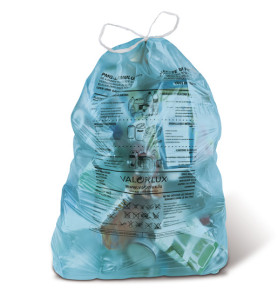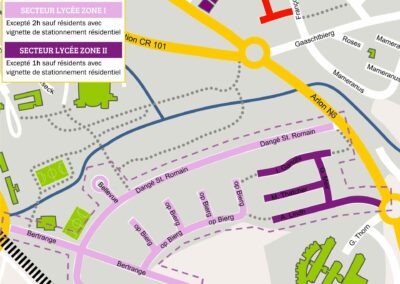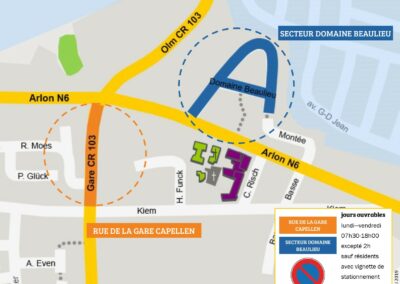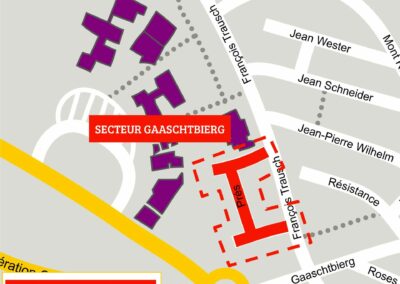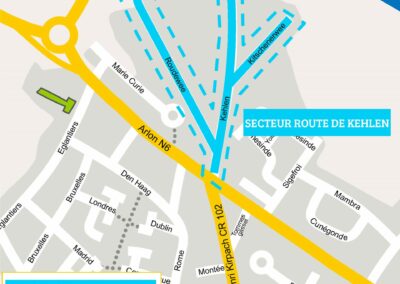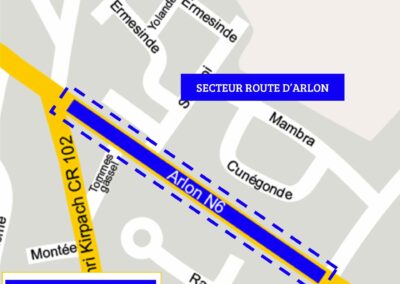Click on the link to access the section
- Collective antenna
- Registration certificate
- Certificate of permanent residence
- Parental authorisation
- Cost of living allowance
- Luxembourg identity card
- Disability card
- Residence permit
- Childcare Service voucher
- Certificates and copies of civil status documents
- Application for planning permission, declaration of works, etc.
- Forest cemeteries
- Cemetery plots
- Certified copy of the original
- Death declarations
- Declaring a dog
- Application for planning permission, declaration of works, etc.
- Request for authorisation for skip and/or no parking sign
- Certificates and copies of civil status documents
- Application for water connection
- Billing
- Change of residence
- Legalisation of signature
- Electoral rolls
Cost of living allowance and energy bonus
The cost-of-living allowance and energy bonus is a government subsidy payable only to low-income households. As it is not fixed by law, its application is decided from year to year. It is a state subsidy, not a municipal one. Applications should be addressed to the Fonds National de Solidarité.
For more information: Cost-of-living allowance and energy bonus on the guichet.lu website
Collective antenna
Eltrona Interdiffusion SA
4-8, Rue de l’Aciérie
L-1112 Luxembourg-Hollerich
tel.: 499 466-1
tel. support: 499 466-888
Monday to Friday 8am to 8pm and Saturday 9am to 5pm
For more information, visit www.eltrona.lu
Births
All births must be reported to the registrar in the municipality where the birth took place within ten days (not including the day of delivery). It is the father’s responsibility to declare the birth of the newborn child. In the absence of the father, this obligation falls to the doctor, midwife or any other person who attended the birth.
Contact: Biergerzenter
For children born in Luxembourg City:
Etat Civil de la ville de Luxembourg
44, Place Guillaume II /2, rue Notre-Dame, L-2090 Luxembourg
Tel: 4796-2631
Fax: 47 36 53
More information: Declare the birth of a newborn child on the website guichet.lu
Marriages
To enter into a civil marriage in Luxembourg, you must first complete a number of formalities (which may vary depending on the nationality of the future spouses) and gather all the documents required to complete the marriage file.
Religious marriage can only take place after a civil marriage. Therefore, religious marriage alone, i.e. without having been preceded by a civil marriage, is strictly forbidden.
Two people of different sexes or the same sex may marry.
In order to marry in Luxembourg, the future spouses must be at least 18 years old, and one of them must be officially resident in Luxembourg.
The future spouses must go to the civil registry office with all the required documents at least 1 month before the wedding date.
Contact: Biergerzenter
More information: Preparing for civil marriage on the website guichet.lu
Partnership
The legal provisions on partnership allow 2 people who have chosen to live together without getting married :
- legal recognition of living arrangements other than marriage;
- legal certainty in civil matters (by establishing certain rules on solidarity and responsibility between unmarried partners), tax matters (by allowing them to benefit from various tax breaks) and social security matters (by granting them social protection).
Partnership – or free union – means a domestic community of 2 people of different sexes or the same sex, called “partners”, who live together as a couple and who have declared their partnership by appearing together before the civil registrar of the municipality of their common place of residence or abode to personally and jointly certify their partnership.
Contact: Biergerzenter
More information: Declaring a partnership on guichet.lu
Declaration of death
All deaths must be reported to the Biergerzenter of the Mamer municipal administration (municipal area: Mamer, Cap-Capellen and Holzem).
The declaration of death can be made
- either by the funeral company contacted by the family
- or by a close member of the deceased’s family or by any other person.
The person responsible for registering the death must present a medical certificate certifying the death, if possible the deceased’s family record book, marriage certificate or birth certificate if the deceased was single and, in the case of cremation, a medical certificate certifying that the deceased was not wearing a pace-maker.
Contact: Biergerzenter
More information: Declaring the death of a loved one on guichet.lu
Forest cemetery
To meet the last wishes of their citizens, the communities of Hobscheid, Kehlen, Koerich, Kopstal, Mamer, Septfontaines and Steinfort have created a regional forest cemetery in the heart of the forest at Olm.
The forest cemetery covers an area of 4.5 hectares. The first plot has 21 trees.
HOW CAN I BE BURIED IN THE FOREST CEMETERY?
A prerequisite is the cremation of mortal remains. The following may be buried in the regional forest cemetery
- the deceased having had their last residence in one of the member communes (Hobscheid, Kehlen, Koerich, Kopstal, Mamer, Septfontaines, Steinfort),
- the deceased dying in the territory of a member municipality,
- the deceased having the right to be buried in a plot granted in the cemeteries of one of the member municipalities.
During the funeral ceremony, the ashes of the deceased are placed at the foot of a tree and returned to the earth. The capacity of a tree is limited to ten burials. Each tree is given a number indicating its location. A memorial panel will list the surnames, first names, dates of birth and dates of death and the location of those buried. The inscription on the memorial panel is made on request.
It is also possible to scatter the ashes in a clearing provided for this purpose in the forest cemetery.
HOW IS THE BURIAL CARRIED OUT?
After cremation, the urn containing the ashes of the deceased is transported by the funeral home to the forest cemetery, where the Kehlen municipal services will arrange for the ashes to be deposited in the selected tree or clearing.
The regional forest cemetery also has a wooden pavilion where a civil ceremony can be held.
IS IT POSSIBLE TO HAVE A FUNERAL DECORATION?
Le cimetière forestier est un cimetière en pleine nature où les changements saisonniers fourniront une décoration naturelle. Ceux qui choisissent cette façon d’inhumation optent volontairement pour une forme naturelle de sépulture ne nécessitant pas de décoration individuelle.
WHAT HAPPENS IF A MEMORIAL TREE IS DAMAGED?
The trees currently planned are mainly beech and oak trees, around 140 years old. They have been chosen because they are in good health and free from visible damage.
If, however, a tree is damaged by a severe storm or lightning strike, we will have to accept this as a fact of nature.
Download the regional forest cemetery brochure: French / German
Contact: Biergerzenter
Cemetery plots
A concession is a right to use a specific plot of land in one of the communal cemeteries for burial or the deposit of ashes.
If, at the time of the declaration of death, the deceased or one of their relatives, whether resident or not, holds a plot in one of the three cemeteries in the commune of Mamer, it is advisable to check the rights that are being invoked.
Apart from the leaseholder, their spouse, descendants and ascendants with their respective spouses, as well as any other person to whom the leaseholder gives permission, may be buried in the grave granted.
It should be remembered that for perpetual plots, a conservatory declaration must be made every 30 years by a beneficiary.
On the death of a person who last lived in the municipality, a new plot may be granted for a period of thirty years. It may be renewed on expiry.
In principle, a plot can only be acquired on the death of a person and only in the municipal cemetery where the deceased last lived.
Contact service: Biergerzenter
Change of residence
Anyone establishing residence in the commune of Mamer must go to the Population Office within eight days to register.
Documents to be presented
- identity document;
- family record book or marriage certificate and children’s birth certificates;
- for non-Luxembourg nationals: residence permit, residence card, registration certificate, permanent residence certificate;
- lease agreement, accommodation authorization;
- vehicle registration document (carte grise) and yellow car registration document (carte jaune) if the vehicle is owned.
Any person, regardless of nationality, who establishes habitual residence within the territory of a Luxembourg municipality must, as soon as they arrive, declare their presence to the population office of the municipal administration of their place of residence.
A new online procedure for changing residence when moving (within Luxembourg from one municipality to another, within the municipality or abroad) is now available via MyGuichet (www.myguichet.lu).
Foreign nationals are also required to comply with formalities relating to the entry and residence of foreigners.
Anyone leaving the Grand Duchy of Luxembourg to settle abroad must declare their departure from the territory to the local authority in their (former) place of residence the day before the departure.
Documents to be presented
- identity document,
- for non-Luxembourg nationals: residence permit, residence card, registration certificate, permanent residence certificate.
Contact: Biergerzenter
More information: Declaring your move to your commune of residence on guichet.lu
Registration certificate
Union citizens (nationals of a Member State of the European Union) and nationals of an “assimilated country” (Norway, Iceland, Liechtenstein and the Swiss Confederation) who intend to stay in Luxembourg for more than 3 months should contact the municipal administration of their place of residence to make a registration declaration for one of the following categories
- Salaried worker
- Self-employed
- Inactive
- Student
- Family member (EU citizen themselves) of another EU citizen
Contact: Biergerzenter
Further information: Registration certificate on guichet.lu
Certificate of permanent residence
After five years of uninterrupted residence in the country, Union citizens are entitled to permanent residence.
Family members who have lived with the citizen uninterruptedly for five years are entitled to a permanent residence certificate if they are Union citizens themselves. Applications should be sent to the Immigration Department of the Ministry of Foreign Affairs (postal address: B.P. 752, L-2017 Luxembourg).
Application for a permanent residence certificate for a Union citizen
Note: The same form can be used to apply for a replacement of the permanent residence certificate by ticking the appropriate type of application on the first page and attaching the documents indicated on the form for the replacement of a permanent residence certificate.
Contact: Biergerzenter
Further information: Applying for a permanent residence permit as an EU citizen on guichet.lu
Residence permit
The Grand-Ducal regulation of December the 21st 2007 led to the abolition of the residence permit for EU citizens.
The residence permit is replaced by the registration certificate. The application must be submitted within three months of arrival to the local administration of the place of residence. In addition, checks by the Grand-Ducal Police before the residence permit is issued have been abolished.
After an uninterrupted legal stay of 5 years, a national of the EU or one of the assimilated countries acquires a permanent right of residence.
Transitional period
Applications for residence permits submitted before January 1, 2008 and pending will be processed in accordance with the new provisions.
Residence permits for EU nationals issued before January 1, 2008:
- remain valid until their expiry date,
- are valid as a registration certificate if they are valid for 5 years or less,
- are valid as permanent residence permits if they are valid for more than 5 years.
Residence permits for third-country nationals who are family members of a Community national issued before January the 1st 2008 are valid as permanent residence permits if they are valid for more than 5 years.
Third-country national who is a family member of an EU citizen
Conditions for a stay of more than three months
A third-country national who is a family member of a Union citizen has the right to reside in Luxembourg for a period of more than three months if they accompany or join a Union citizen who themselves meets the conditions for residing in Luxembourg for a period of more than three months.
More information: Staying in Luxembourg for more than 3 months as a third-country national and family member of an EU citizen or Luxembourg national on the myguichet website
Third-country nationals (employees)
Third-country nationals wishing to settle in Luxembourg for more than 3 months in order to work as an employee must follow a procedure consisting of 2 consecutive stages:
- Step 1 : Before entering the country :
- apply for a temporary residence permit from the Immigration Department of the Ministry of Foreign and European Affairs;
- be in possession of a valid passport;
- for people who require a visa to enter Luxembourg: after obtaining a temporary residence permit, apply for a type D visa;
- Stage2 : after entering the country :
- make a declaration of arrival to your new commune of residence in Luxembourg;
- undergo a medical examination;
- then apply for a residence permit for employees who are third-country nationals.
Further information: Staying in Luxembourg as an employee from a third country on guichet.lu
Luxembourg identity card
An identity card is compulsory for all Luxembourg nationals aged 15 and over who have their usual place of residence in a Luxembourg municipality. For Luxembourg nationals under 15, an identity card is not compulsory, but is issued on request.
To obtain an identity card, a request must be made through the Population Office or the Guichet.lu reception desk.
The applicant, with his or her confirmation of payment (printed version), must go in person to the Guichet.lu reception desk or to the population office in his or her commune of residence to complete the application.
Minors must be accompanied by a parent with custody rights or a legal guardian.
The photo on the card is taken on site using the equipment installed.
All citizens aged 15 and over will be able to have two certificates on their identity card, enabling them to:
- electronically sign documents and online transactions, with a legal value equivalent to a handwritten signature;
- connect securely to a wide range of government and private online applications.
Activation of the certificates is optional and will be decided at the time of application.
The following documents must be produced
- an expired identity card or a police report of loss/theft
- printed proof of payment of the fee indicated below.
5€ for children aged 0-3 14€ for holders aged 15 and over
10€ for children aged 4-14 45€ for an accelerated procedure
Account number: IBAN LU44 1111 7028 7715 0000
Beneficiary name: TS-CE CTIE Cartes d’identités / B.p.1111 / L-1011 Luxembourg
BIC code: CCPLLULL
Communication: Name(s) of person(s) concerned
It is also possible to pay the tax with Payconiq on site.
In the event of an application by several members of a family, it is possible to make a single transfer for the fees, but the proof of payment must indicate the first name and surname of all the persons concerned.
The normal delivery time for identity cards is 10 working days from the date of application.
Contact: Biergerzenter
Further information: Identity card at guichet.lu, eid.lu
Luxembourg biometric passport
To obtain a new passport, Luxembourg nationals living in the commune of Mamer should apply to the Ministère des Affaires Etrangères via the Biergerzenter of the Mamer commune administration.
The application must be made by the applicant themselves.
A passport application for a minor must be submitted by a parent exercising parental authority, or where applicable, by the legal guardian. In the event of divorce or pending divorce, the passport application for the minor must be submitted by the parent to whom the judge or the law grants parental authority. Both parents are authorised to submit the application for the minor if the judge or the law grants them joint parental authority. A passport application for a minor submitted by a parent without parental authority or by a third party will be processed only on presentation of a power of attorney signed by the parent exercising parental authority over the minor and authenticated by the competent authorities.
The following documents must be produced
- an identity document
- an expired passport (old passport)
- proof of payment of €50 and €30 respectively (minors aged 0-3)
- (Emergency procedure €150 and €90 respectively (minors aged 0-3))
Account number: IBAN LU46 1111 1298 0014 0000
Beneficiary name: Bureau des Passeports
BIC code: CCPLLULL
Communication: Application for biometric passport “first name/last name
The new passport must be collected from the place of application after a period of 7 working days.
In the case of an emergency procedure, the period is 3 working days and the passport must be collected automatically from the Passports, Visas and Legalizations office at 6, rue de l’Ancien Athénée L-1144 Luxembourg.
Visa Waiver Program (USA, Canada)
Foreign travelers wishing to visit the USA or Canada under the Visa Waiver Program are subject to additional security screening requirements. All travelers concerned must apply for authorization through the process on the website ESTA (Electronic System for Travel Authorization) for the United States of America and on the ETA (Electronic Travel Authorization) website for Canada.
Contact: Biergerzenter
Further information: Luxembourg biometric passport at guichet.lu
Parental authorisation
Minors traveling abroadunaccompanied by their parents must carry valid identification and parental authorization.
The person with parental authority (father, mother or guardian) should contact the Biergercenter. They must sign an authorisation form and present
- an identity document;
- the custody order, if applicable;
- the minor’s identity card;
- 4€ (chancellery fee payable to the local administration);
- the exact location of the travel destination, the dates of travel, and if applicable, the name of the person responsible for accompanying the child.
Contact: Biergerzenter
Further information: Parental consent certificate on the guichet.lu website
Certificates
The Biergerzenter service issues the following certificates:
- residence certificate;
- extended residence certificate;
- life certificate;
- electoral roll registration certificate;
- parental authorisation;
- copies of civil status certificates.
To obtain one or more of these certificates, you should always bring an identity document.
Some certificates can also be ordered online
Contact service: Biergerzenter
Please note the following:
Extracts of birth, marriage and death certificates are issued by the commune that drew up the original certificate (e.g. a person born in Luxembourg should request a copy of their birth certificate from the Luxembourg City Registry Office).
Etat Civil de la ville de Luxembourg
44, Place Guillaume II /2, rue Notre-Dame, L-2090 Luxembourg
Tel: 4796-2631
Fax: 47 36 53
VDL online extract request form
Certificates of nationality are issued by the:
Ministère de la Justice
Service de la nationalité luxembourgeoise
Centre Administratif Pierre Werner
13, rue Erasme
Luxembourg-Kirchberg
Tel: 247-84532
Fax: 26202759
www.mj.public.lu
Luxembourg nationality
The acquisition of Luxembourg nationality confers on the foreigner the status of Luxembourg citizen with all the rights and duties attached thereto.
In addition, by virtue of the principle of dual nationality, applicants may now acquire Luxembourg nationality, under certain conditions, without having to renounce their original nationality.
Contact: Biergerzenter
Further information: Acquiring Luxembourg nationality on guichet.lu
Disability card
The disability card is issued to people with walking disabilities whose disability, although less than 50%, nevertheless causes them serious difficulties in moving around or standing. Holders of the disability card are entitled to priority passage or service, a seat in all circumstances, and free travel on the entire public transport network of the Grand Duchy of Luxembourg.
There are three categories of disability card:
- A cards are issued to people with a degree of physical disability of between 30 and 49%;
- B cards are issued to people whose degree of physical disability is> 50%;
- C cards are issued to people whose physical or mental condition is such that they cannot move without the assistance of another person.
From July the 1st 2007, the administrative procedure has been simplified insofar as the transport ticket issued in the past by one of the four public transport companies and which had to be presented together with the disability card is no longer required. The disability card can be used in place of a ticket if it is accompanied by an official form of identification (identity card, passport).
Disability cards are issued by the Ministry of the Interior via the local authority’s Biergercenter.
Documents to be presented
2 recent passport photos (45×35mm), in colour, on a light background, full-face and bareheaded, less than three months old.
Contact: Biergerzenter
Certified copy of the original
Applicants must bring original documents with them. Certified copies are made by an official on site from the original supplied by the applicant.
Documents to be presented
- original document;
- €4 per document (chancellery fee payable to the local authority).
Contact: Biergerzenter
Legalisation of signature
To legalize his or her own signature on a document or deed, the person whose signature is to be legalized must go in person to the Biergerzenter and sign the relevant documents in front of the official authorized to legalize signatures.
Documents to be presented
- €4 per legalisation (chancellery fee payable to the local administration).
Contact service: Biergerzenter
Further information: Legalisation of signature on the guichet.lu website
Electoral rolls
Luxembourg nationals living in Luxembourg are automatically entered on the electoral rolls of their commune of residence, as soon as they meet the conditions required by electoral law.
Nationals of other countries who wishes to take part in the elections must, as soon as they meet the conditions required by electoral law, register for the elections in question with their commune of residence or electronically via the MyGuichet portal using their LuxTrust certificate.
Once registered, non-Luxembourg voters are kept on the electoral roll in the same way as Luxembourg voters. However, they may renounce their right to vote at any time. To do so, they must contact their commune of residence.
Voting is compulsory for all persons (Luxembourg nationals or foreigners) registered on the electoral roll.
Conditions for taking part in the European elections as a non-Luxembourg national:
- be a national of another Member State of the European Union;
- be at least 18 years old on election day;
- be domiciled in the Grand Duchy.
Conditions for taking part in local elections as a non-Luxembourg national:
- being at least 18 years old on election day;
- for nationals of another Member State of the European Union, being domiciled in the Grand Duchy and to have resided there at the time of the application for registration on the electoral roll;
- for other foreign nationals, being domiciled in the Grand Duchy and have resided there at the time of the application for entry on the electoral roll. You must also be in possession of a residence permit.
Documents to be presented
- a valid identity document.
Contact service: Biergerzenter
Biergerzenter – Nocturne with extended opening hours
Every Wednesday from 4.30 pm to 7.00 pmby appointment only!
There are two ways to make an appointment:
online: https://rendezvous.mamer.lu
or
by phone: 31 00 31-1
During normal opening hours (Monday to Friday 08.00 – 11.30 and 13.30 -16.30), administrative procedures can be carried out without an appointment.
Childcare Service voucher
The childcare-service voucher scheme (CSA) is aimed at children under the age of 12 who are members of the childcare-service voucher scheme or who have not left basic education. The CSA is a benefit in kind that gives parents reduced rates for non-formal education and childcare services, subject to the availability of places. The amount of the State contribution (amount of the CSA) and the amount of the parents’ financial contribution are calculated on a case-by-case basis, taking into account the income situation, the number of children in the household receiving child benefit and the number of hours of non-formal education during which the child is looked after. The amount of the CSA is paid to the provider.
On 12 July 2022, the Chamber of Deputies passed the law on free non-formal education. From the start of the 2022-2023 school year, childcare in non-formal education facilities during school weeks will be free of charge for children enrolled in basic education from the age of compulsory school attendance. The free entitlement will apply to children aged 4 or over on 1st September, regardless of whether they attend FE or the equivalent. Early education is not covered. Holiday weeks are not free of charge and parents’ financial contribution during these weeks is no longer capped by a lump sum > CSA scale that applies.
Free childcare applies to school weeks, Monday to Friday from 7am to 7pm.
Meals are also free for all children subject to compulsory education during school weeks.
Parents must choose a service (education and childcare service or parental assistant) that meets the conditions required to obtain the title of “CSA provider” and meets quality requirements.
Documents to be submitted to the local authority in order to benefit from an additional reduction based on income, proof of all household income documented by:
if you are filing a tax return
- the most recent tax return in your possession.
if you do not file a tax return:
- visit income certificate issued by theAdministration des contributions directesattesting to the fact that you are not required to file a tax return , and the most recent annual salary, pension or unemployment certificate , or a income certificate issued by the Center commun de la sécurité sociale for the self-employed.
if you are not taxable under Luxembourg domestic law or international agreements:
- your last three payslips.
if you are receiving maintenance for a child living in the household:
- divorce decree, summary proceedings order, etc.
if you are unable to provide any of the documents listed above:
- any other document issued by the employer or any document documenting current income (international employees/civil servants: last three payslips, self-employed: accounting documents drawn up by a trustee).
Contact: Biergerzenter
Further information: men.public.lu and guichet.lu
Bins
The basic fee is independent of actual use of public waste management and amounts to €17.00 per month for each household or firm.
Types of bins and purchase price
Charges for emptying bins
For further information, please contact municipal revenue office.
Valorlux
VALORLUX bags will be collected free of charge and are available free of charge to residents at the Commune.
The mixed collection of plastic bottles, metal packaging and beverage cartons (PMC) in blue bags is organised by SICA. The bags are collected door-to-door every fortnight.
Find out more in the Valorlux leaflet.
Recycling centres
- Mamer, rte de Dippach
Monday closed, Tuesday to Friday 09:00 – 12:00 and 13:00 – 18:00 and Saturday 09:00 – 13:00 - SICA Intercommunal Recycling Centre in Kehlen, Zone Industrielle
(Tel: 30 78 38-30, Fax: 30 76 44 E-mail: info@sica.lu)
Monday to Friday: 08.00 – 12.00 and 13.00 – 18.00, Saturday: 08.00 – 15.30
Billing
Invoices sent to you by the municipal administration must be paid at the municipal revenue office.
You can pay them
- by payment or transfer to one of the above accounts, quoting the invoice reference number.
- by standing order for regular bills (e.g. council tax, water, canal, rubbish or property tax).
- or in cash at the local revenue office during opening hours.
If you have not yet opted for a standing order, please contact the recette communale to make a request. Future bills will then be automatically debited from your account.
If you have any queries about invoices sent to you, please do not hesitate to contact the local tax office.
Declaring a dog
All dog owners must register their dog with their local council within 4 months of the dog’s birth, using a veterinary certificate stating:
- the breed;
- whether the dog is likely to be dangerous;
- the dog’s current rabies vaccination status.
In principle, this certificate is drawn up by the approved vet when the animal is electronically identified.
In addition, when making the declaration to the local authority, the dog keeper must provide proof that an insurance policy has been taken out with a company approved or authorised to operate in the Grand Duchy of Luxembourg, covering the dog keeper’s civil liability for damage caused to third parties by the animal. It is advisable to obtain information about this document in advance from your local council: it may be a certificate issued by the insurance company or simply a copy of the insurance contract.
The declaration includes details of the owner, the dog’s breed, its electronic identification number, its anti-rabies vaccination and the veterinary surgeon’s signature.
If the dog is recognised as dangerous, the declaration must include the words “Dog likely to be dangerous“. In this case, an additional declaration is also required.
The applicant then obtains proof of the declaration from the local authority (a receipt in the form of a receipt signed by the mayor). This receipt bears the letter A for the declaration of any dogand the letter B for the second declaration for dogs likely to be dangerous.
Special cases
If the owner of a dog changes residence, they must declare it to the administration of their new commune within one month, taking with them the receipt from their previous commune. The address shown on the dog’s receipt must be updated. To do this, the owner must provide the old receipt. They will then be issued with a new one showing their new address.
In the event of a move from abroad to Luxembourg, the deadline for declaring the dog to the local Luxembourg administration is one month.
If the dog changes owner, the new owner must declare it to the local authority within one month (even if the new owner lives in the same local authority as the previous owner), bearing the valid receipt.
When notifying the local authority, the (new) owner must also provide proof of a civil liability insurance policy covering any damage caused by the animal to third parties. This proof consists of a copy of the insurance policy receipt. Damage caused to third parties is covered by the owner’s civil liability.
Any loss, death or transfer of a dog must be reported to the local authority so that it can be informed of the situation of dogs residing within its boundaries.
Contact service: Biergerzenter
Further information: How to identify and declare a dog on the guichet.lu website
Residential parking
Streets concerned
Mamer
Secteur Lycée
rue Belle-Vue
rue de Bertrange
rue Op Bierg
rue Dangé-St-Romain
rue lndira Gandhi
rue Klengliller
rue Anna Lindh
rue Golda Meir
rue Margaret Thatcher
Station sector
rue de l’Ecole
rue de la Gare
Baerendall sector
rue du Baerendall (odd 1-39, even 2-24)
rue Mambra
rue Cunégonde
rue Sigefroi
rue Ermesinde
rue Yolande
Route de Kehlen area
Kitschenerwee
Roudewee
route de Kehlen
Gaaschtbierg area
rue des Prés
Route d’Arlon sector
From rue Baerendall to rue Henri Kirpach
Capellen
Secteur Beaulieu
Domaine Beaulieu
Station area
rue de la Gare (odd 1-39, even 1-9)
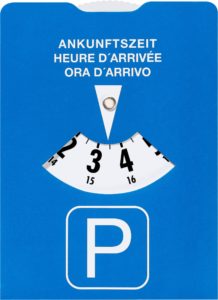
Parking for non-residents
Non-residents are allowed to park their vehicles in the streets where residential parking is permitted from Monday to Friday, from 7.30am to 6.00pm, for a maximum of 2 hours, with the exception of the Lycée II sector, where the maximum parking time is 1 hour, subject to the use of a parking disc. Outside these days and hours, parking is permitted without a disc or sticker.
Parking for residents
People living in the streets concerned can apply for a residential parking sticker, which authorises them to park their vehicle in accordance with the law, i.e. for up to 48 hours continuously.
Each household will be entitled to 3 “free” stickers. Stickers may be requested by members of households residing at an address in a sector subject to residential parking regulations and who own one or more passenger cars. These stickers will be automatically renewed towards the end of the year. It will not be possible to issue stickers for companies or commercial vehicles.
A 4th sticker may be issued on payment of an annual fee of €100.
Change of car/Registration plate
Any change of car/registration plate must be notified to the local authority. To obtain a new sticker showing the new number plate, the sticker in your possession must be returned to the local authority, together with the registration certificate (carte grise, Zulassungsbescheingung) for the new car.
Loss of the sticker
Theft or loss of the sticker must be reported to the local authority as soon as possible using the appropriate form.
Declaration of loss form
Provisional sticker
A provisional sticker can be obtained for:
- vehicles still registered abroad. The sticker is issued for a maximum of 6 months.
- the temporary replacement of a car for which a permanent sticker is valid, when the car is being repaired or serviced by a garage. The sticker is issued for an appropriate period.
Application for temporary stickers
Visitor sticker
A visitor’s sticker may be requested by residents of a sector subject to residential parking regulations, on behalf of persons who are not residents of the municipality/sector in question, when these persons are staying with the applicant for an extended period as part of a family relationship.
A maximum of 3 visitor stickers may be issued for a minimum period of 1 week per sticker, per household and per year. However, the maximum cumulative duration (of the 3 stickers) may not exceed 3 months per household per year.
For the same car, the visitor sticker is issued to all residents of the municipality for a maximum period, renewed and accumulated if necessary, of 3 months per year.
How to apply for a visitor’s tax sticker
Contact service for vignettes: Biergerzenter
Planning permission, declaration of works, etc.
Application for planning permission for a skip and/or no-parking sign
Request for water connection
Meals on wheels
The commune offers you the “Meals on Wheels” service.
Carried out in collaboration with Servior, it guarantees home delivery of meals, 7 days a week, even on public holidays. The hot meal consists of a starter, main course and dessert.
This meal can be adapted to your needs (dietary, salt-free, etc.).
Price per meal: €19.
To register for the meals-on-wheels service, please go to the local authority office and show proof of identity.
See the Servior brochure
Contact: Biergerzenter
More information on the Servior

